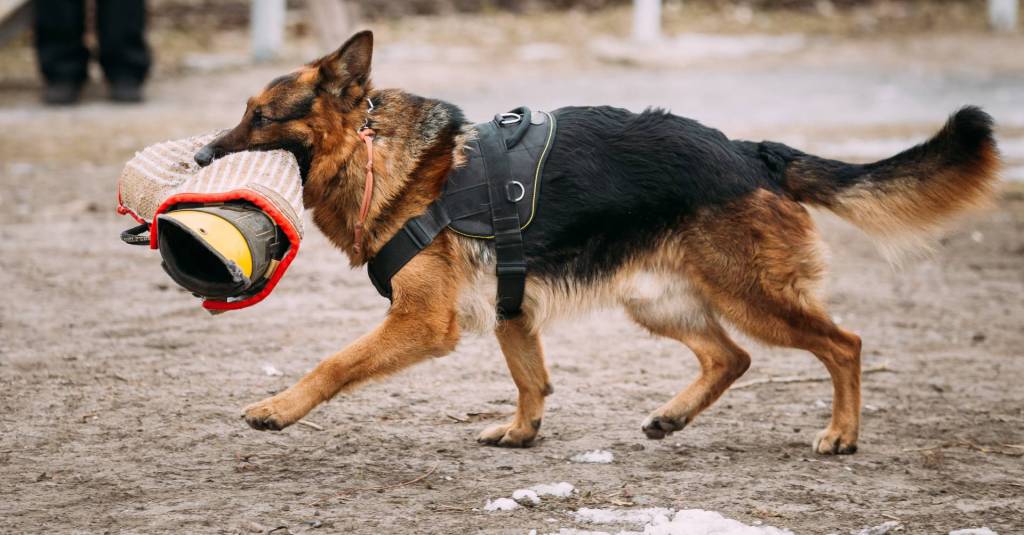Over 800,000 victims of dog bites seek emergency medical treatment every year in the United States. Is your child at risk? Are you? Anyone who is injured by a dog in southern California should discuss the incident with a Pasadena personal injury attorney.
Children and the elderly sustain most of the reported dog bites in the United States. Thirty-six people died in the U.S. in 2018 from dog-bite related injuries.
Biting dogs can cause serious muscle and nerve damage, scarring, lacerations, disfigurement, and lasting psychological anguish and pain. Rabies is a real possibility.
WHICH DOG BREEDS ARE THE MOST DANGEROUS?
Every study and survey about dog bites reaffirms that the most dangerous dogs are Pit bulls, Rottweilers, German shepherds, and Doberman pinschers. However, any dog may be provoked to bite, and a strange dog must be presumed dangerous until you’re certain that it isn’t.
How are personal injury claims arising from dog bites handled in California? If you’re a dog owner, or if you’re a parent, you need to know, so keep reading. You’ll also learn what your rights are as a dog bite victim and how to get the legal assistance you will need.
WHAT IS STRICT LIABILITY?
The legal doctrine governing personal injury claims arising from dog bites in California is the “strict liability” doctrine. Strict liability makes a dog owner liable for damages caused by a biting dog.

If the owner did not know that the dog was aggressive, and if the dog had no history of aggression or biting, it doesn’t matter. Dog owners are still strictly liable for damages caused when a dog bites someone in California.
Strict liability means that a dog bite injury victim does not have to prove that the dog’s owner was careless or negligent. In other words, if you’re injured by a biting dog in California, the law will be on your side.
WHAT DOES IT TAKE TO PREVAIL WITH A DOG BITE CLAIM?
To prevail with a personal injury claim arising from a dog bite incident in this state, a bite victim must prove only that the incident happened on public property or while the victim was legally on private property.

However, the strict liability doctrine in California law applies only to injuries caused by dog bites. If a dog knocks you over or injures you in some other way, your legal claim would be like any other personal injury claim.
In other words, strict liability would not apply, and to win damages, you and your attorney would have to prove that the dog’s owner had been negligent and that your injury was the consequence of that negligence.
WHAT SHOULD YOU DO WHEN A DOG BITES?
When a dog bites someone, that victim will require immediate medical attention. If the animal displayed rabies symptoms – or the owner could not be located – a doctor may require rabies vaccinations. Some victims also need surgery and extensive therapy.
Make and keep copies of all medical, insurance, and legal documents generated by a dog bite. If eyewitnesses saw what happened, try to obtain names and contact details. Your injury attorney may need their statements and/or testimony.
Take photos of your visible injuries and the setting where the dog bite occurred. Don’t speak to anyone representing an insurance company. Instead, have the right Pasadena personal injury attorney do the talking and negotiating on your behalf.
CAN YOU TELL WHEN DOGS ARE GOING TO BITE?
While the victims of dog bites have legal recourse in California, it is of course much better to never suffer a dog bite. When dogs are about to bite, they usually display warning signs. It’s vital for parents and children to know these signs. A dog about to bite may:
1. bark and/or growl menacingly
2. lift his or her lips
3. bare his or her teeth
4. raise the hackles on his or her back and neck
5. go rigid
WHAT SHOULD PARENTS TEACH CHILDREN ABOUT DOGS?
However, not all dogs display these warning signs. When you first encounter a dog, do not touch it, pet it, approach it, or make eye contact. Try to stay motionless and calm. Do not scream or run because that may provoke an aggressive dog even more. Parents should teach children to:
1. avoid strange dogs
2. ask the owner for permission to approach or pet a dog
3. take care not to provoke any dog – even the family pet
A dog’s owner must take the responsibility to keep other people safe; strict liability works to compel California dog owners to take all reasonable precautions.
HOW DO DOG OWNERS DEFEND THEMSELVES AGAINST INJURY CLAIMS?
A dog owner in a California dog bite case may offer the “trespassing” defense. As mentioned previously, to prevail with an injury claim arising from a dog bite in this state, the victim had to be on public property or legally on private property when the dog bite occurred.
Someone who was trespassing on private property when a dog bite happened probably cannot win damages. And if a victim provoked a dog in any way, his or her claim probably will not prevail.

California personal injury law also creates an exception for military and police dogs. If a military dog or a police dog bites someone in the line of duty, an injury claim likely will not prevail.
IS THERE A DEADLINE FOR TAKING LEGAL ACTION?
If a dog bites you or your child, do not sign any statement or insurance document before you’ve consulted a California injury lawyer. Without proper legal counsel, you may settle for an amount that is far less than your claim is worth, and you may be waiving the right to further legal action.
California has established a two-year statute of limitations for personal injury claims. If you fail to act within two years of the date a dog bit you, no damages can be recovered.

Don’t wait for two years and then scramble to take legal action before the statute of limitations expires. After a doctor has examined and treated you or your child for a dog bite, arrange promptly to meet with a southern California personal injury attorney.
If you’re a dog bite victim and you can prove that you sustained damages arising from a dog bite, you’re entitled by law to full compensation for current and future dog bite-related medical costs, lost wages including any lost future earning capacity, and all other related loses and damages.






 Email Us Now
Email Us Now